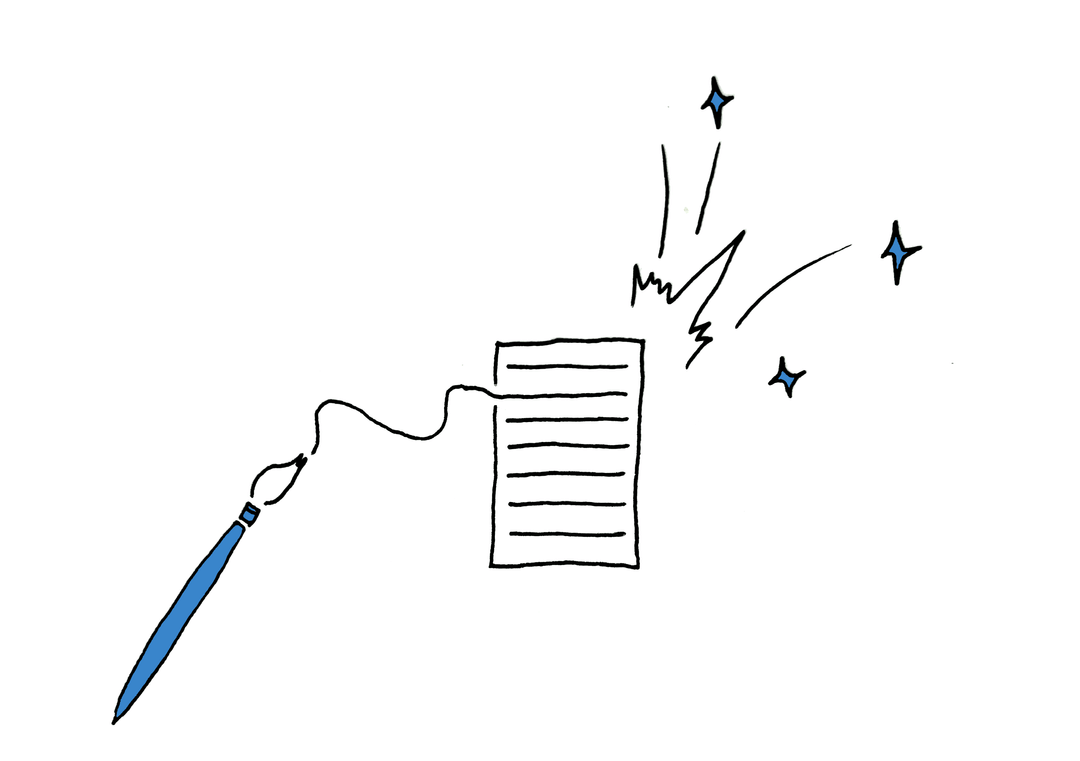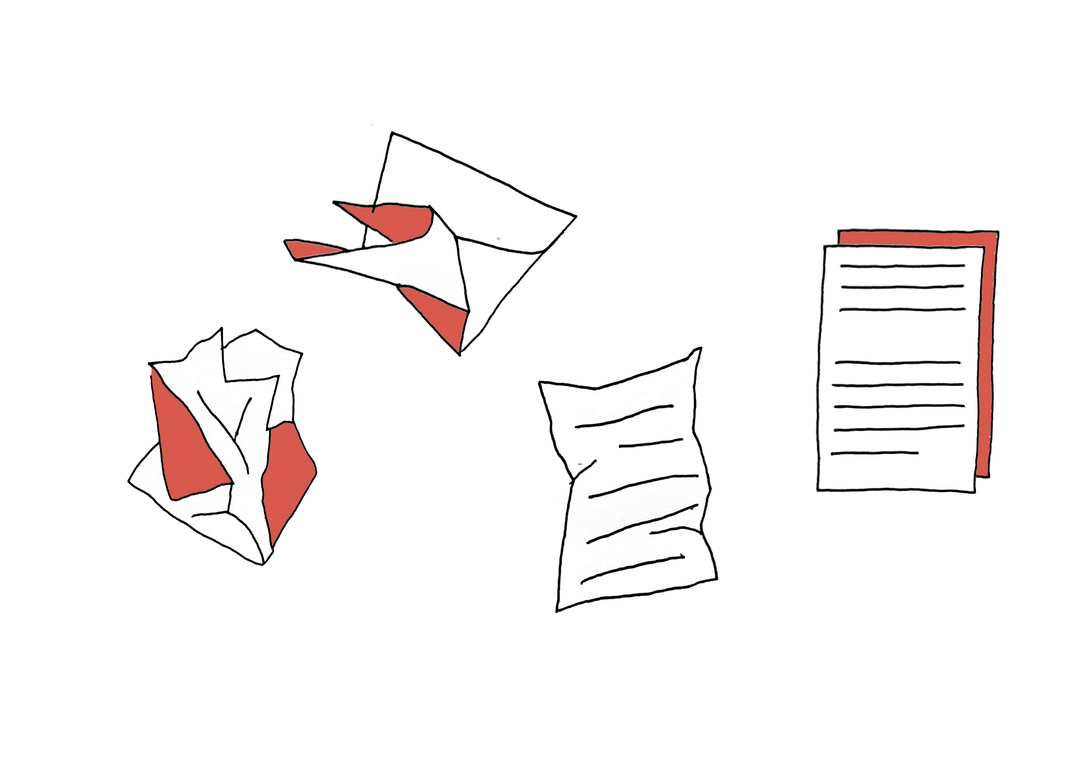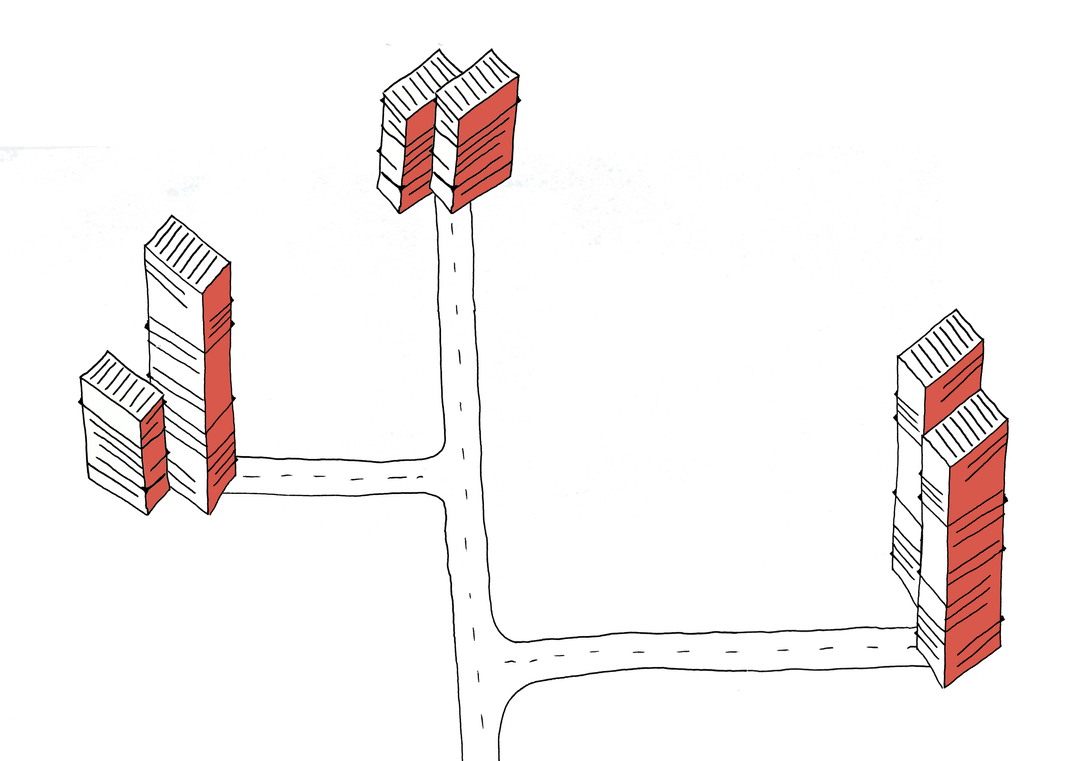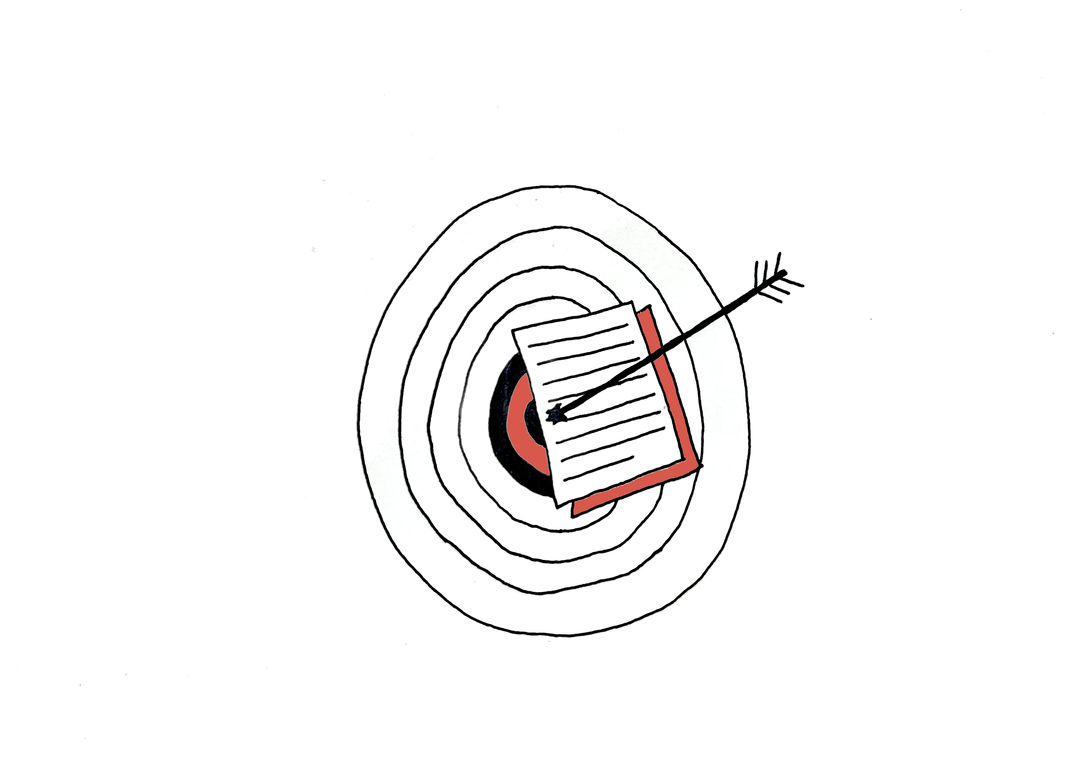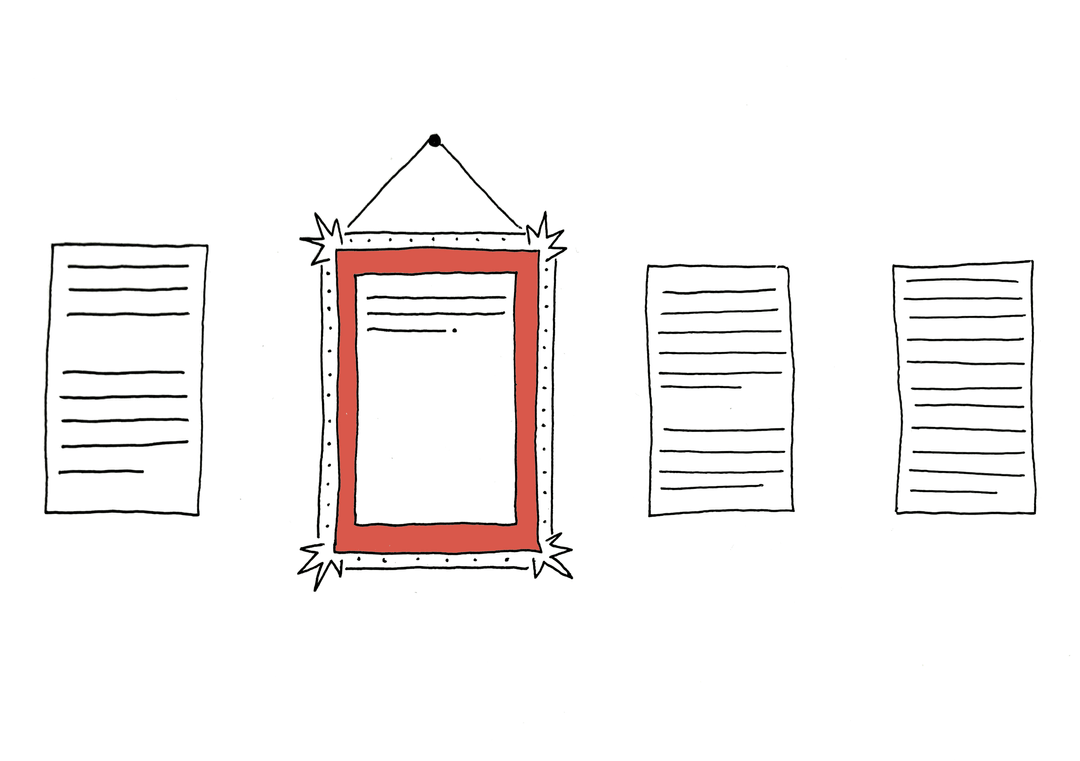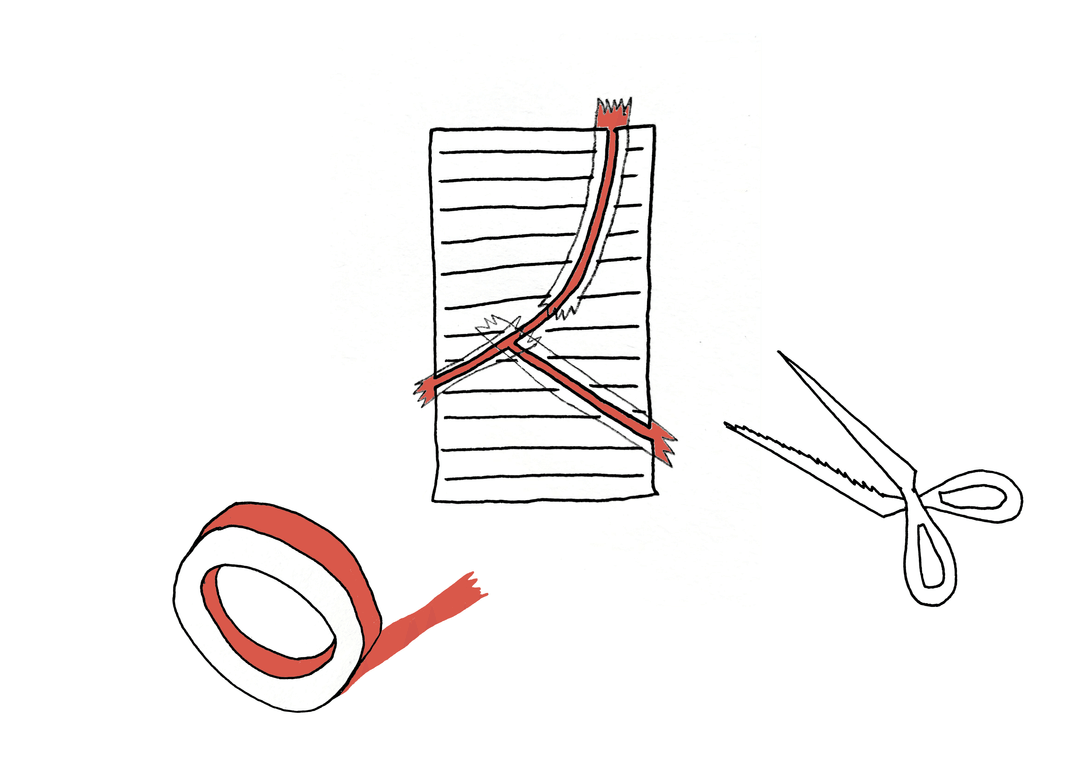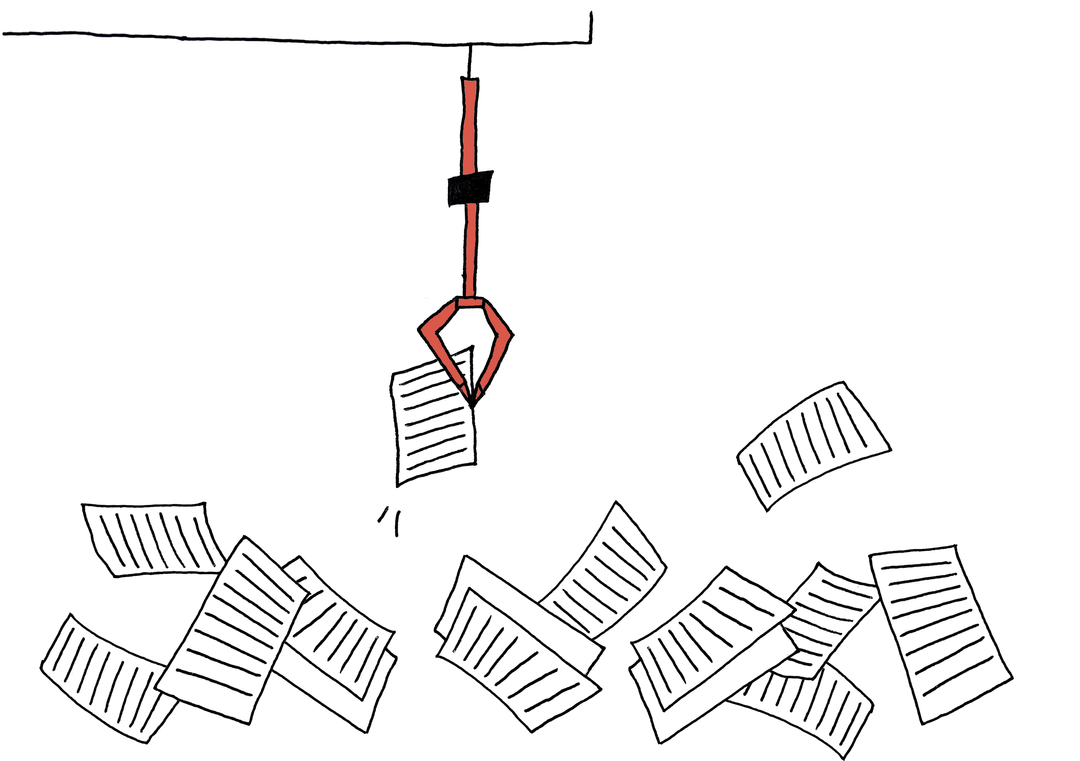How to make your marketing brief inspiring 🪄

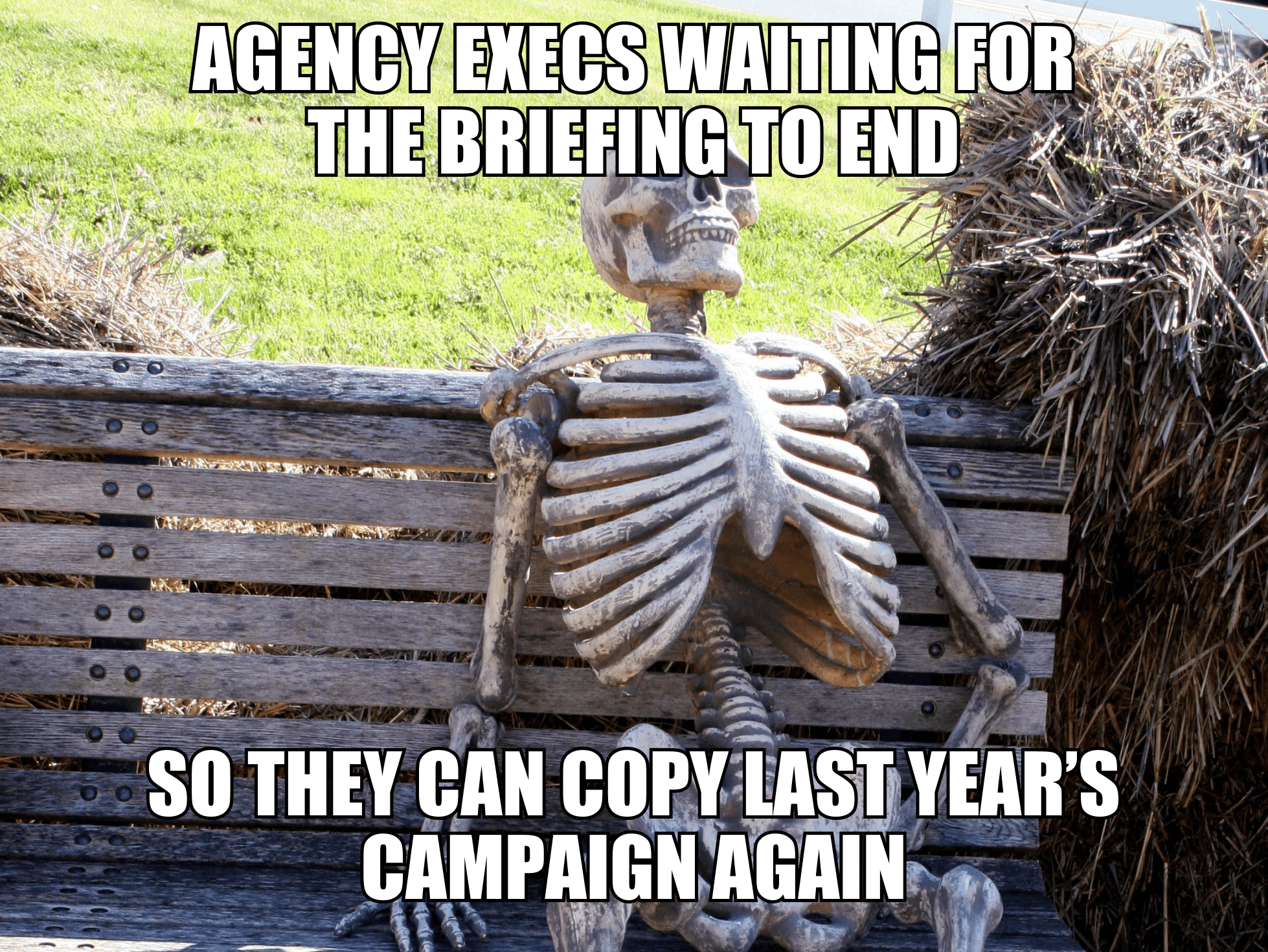
Writing an inspiring brief is important because it means it will get a disproportionate amount of attention from your agency. Giving them an interesting problem to solve is the best way to ensure they stay excited, energised and motivated to create a kick-ass campaign.
You can do this in seconds by adding a standout campaign to your brief from our database of world-class campaigns, with Inspo on Briefly.
Making your brief inspiring
There are plenty of ways to add some inspiration and excitement to your brief. We're going to focus on two here:
- Creating an interesting business challenge
- Leaning on case studies to add some fizz
How to write a compelling business challenge
There are a few best practice rules to writing a business challenge. It should be direct and concise. You should define the nature of the problem: how you got here, and where you want to get to. And you should diagnose the problem without guessing at solutions. For more on writing best-practice marketing problems, check out our guide here.
But a marketing problem isn't a business challenge. Your business challenge is often one of the first sections of a brief, intended to summarise the reason this campaign is needed to solve something for the business.
The best business challenges are a single, simple sentence, but these 4 steps will get you to a great starting point:
1. Start with a Compelling Opening
Begin the challenge with an attention-grabbing statement or question that highlights the significance of the task at hand. This could be a statement about the current market landscape, a recent trend, or a statistic that illustrates the importance of the challenge.
2. Clearly State the Problem
Be concise and specific in describing the central issue you want to tackle. Clearly identify the problem that needs solving and avoid vague or broad statements. Ensure that everyone reading the challenge understands the main focus. Start with where your business currently is (and what challenge you might be facing), then explain what needs to change to improve things.
3. Provide Relevant Context
Briefly explain the background or context of the challenge. This helps set the stage for why this problem has become important and how it fits into the broader marketing strategy or business objectives.
4. Highlight the Impact
Emphasise the potential consequences of not addressing the challenge effectively. Show how it could affect the company's growth, market position, or customer perception. Demonstrating the impact adds urgency to the brief.
How to use case studies to inspire my agency
You can use case studies from across the advertising industry for 3 purposes:
- Illustrate a creative idea or insight that another brand has used particularly well
- Communicate the scale and ambition you have for your campaign - this is notoriously difficult to try to explain in words
- Challenge your agency on craft or production quality
Whatever you're using a case study to do, the key thing is to say why you've included it in your brief. What do you want your agency to pay attention to? Because one thing you should avoid doing at all costs is pointing at an existing campaign and saying, "I want something like that."
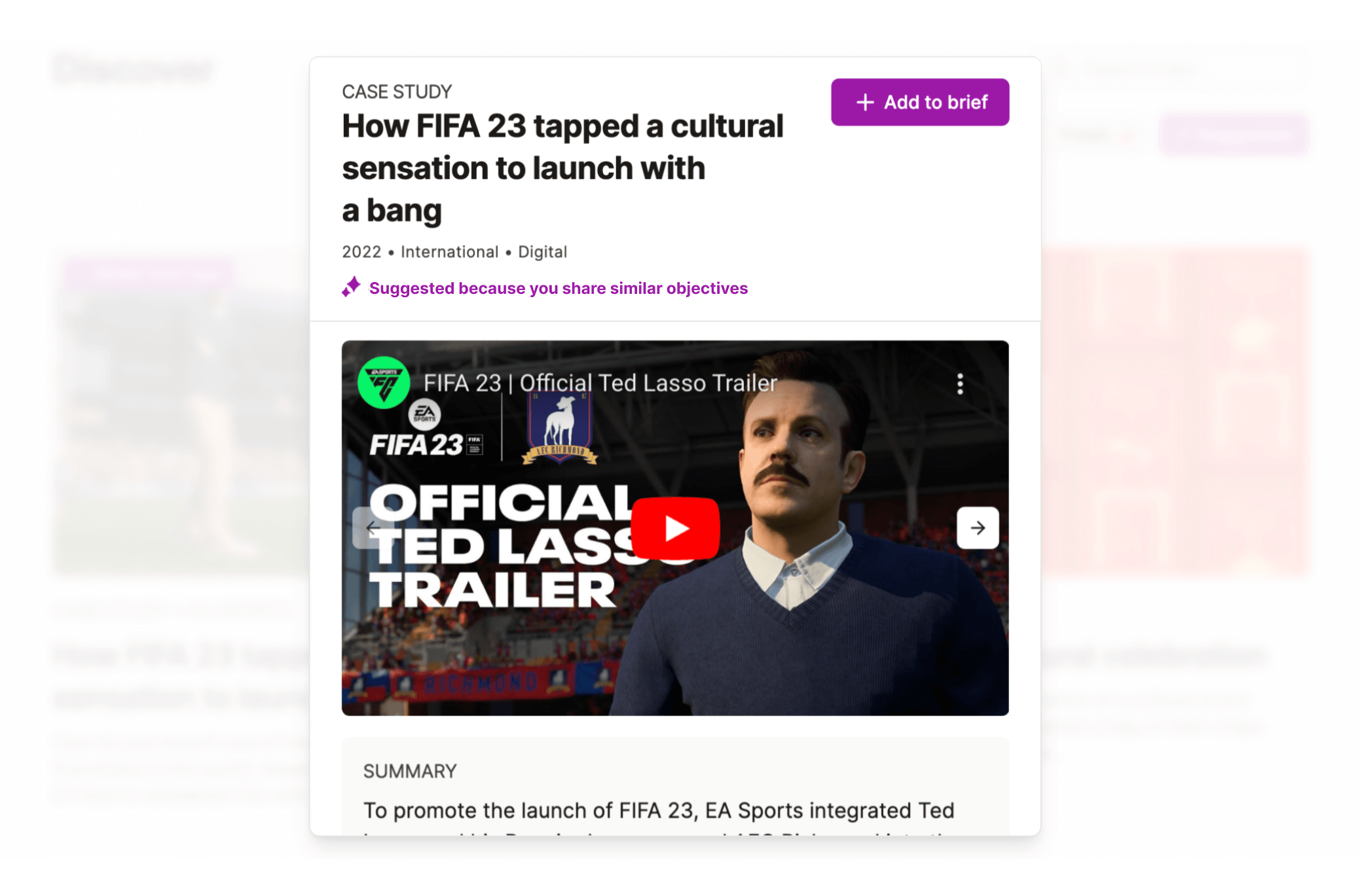
Pro tip: Briefly automatically provides inspo for every brief you write.
Finding case studies
Briefly automatically populates reviews of your brief with relevant case studies, indicating key features that specifically match up to the brief you're writing. It can be difficult to find a campaign that has done exactly what you're trying to do when you're looking by yourself. If you're not using Briefly, some useful (but paid) tools include:
Even the most strategically sound brief is unlikely to get to the best work if it's not inspiring. Including case studies and a compelling problem will lead to a more inspiring brief. Next comes the briefing itself - here's our guide on how to brief your agency and get them excited about your campaign.
Of course, if you want to make writing a great brief easy, you can always try Briefly 🌱




